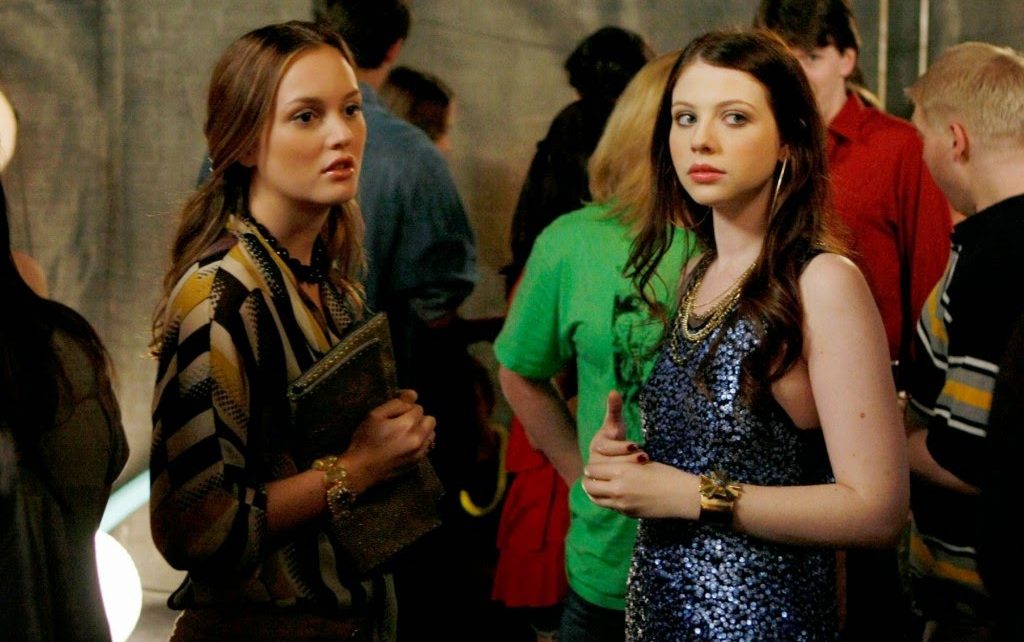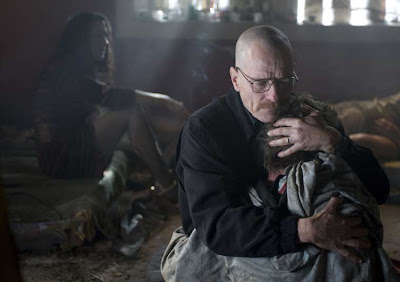October 5, 2009
Without doubt, this is a golden age of television. I look forward to each new episode of MAD MEN and BREAKING BAD the way I used to look forward to the release of a much-anticipated film. Television excels at creating density of detail. There is the time to examine character and specific behavior in a way that is impossible in a theatrical film. A show like THE WIRE is similar to a novel, in its large cast and converging plots, like the best of Dickens.
In addition, as more and more people get larger televisions and home theater systems, the framing and composition of many shows has become more sophisticated. The use of music, the quality of the sound mixes, and the visual effects reach for cinematic standards. And, given the short nature of most television schedules, the amazing thing is that there is so little in the movie theaters to compete with the best of what TV has to offer. During the past few years there have been only a handful of theatrical films that warrant making the trip out. And sometimes even the event films disappoint: REVOLUTIONARY ROAD paled in comparison to MAD MEN, in its examination of the inchoate longings of mid-20th century marriage, partly because there was no time in the feature to get to know the characters in a way that made me care.
And there are many other shows that qualitatively make my point: THE SOPRANOS, NURSE JACKIE, HUNG, SIX FEET UNDER, SEX AND THE CITY, WEEDS, NIP-TUCK, and BBC shows like SKINS, LITTLE DORRIT, THE WAY WE LIVE NOW, TORCHWOOD, DR. WHO…the list goes on and on. The writing on television today, as well as the production values, are extraordinary.
The happy by-product of this wave of excellent television is a congruent wave of wonderful writing about television. And with the advent of the internet, and innumerable blogs, there is a democratic opportunity for analysis and criticism by anyone who feels passionate about it.
I always read the “TV Club”, a three-way discussion of MAD MEN every Monday on Slate.com by Patrick Radden Keefe,John Swansburg, and Julia Turner. It’s smart, trenchant writing and makes my experience of watching the show that much richer.
In terms of my own shows, I love the New York Magazine Daily Intel reality index of GOSSIP GIRL each Tuesday. It always makes me laugh and amazes me that, beneath the wit, there are great insights about what works and what doesn’t.
There are dozens of commentaries about GOSSIP GIRL on the web, but I think my favorite writer covering the show right now is Jacob Clifton, who writes GG recaps on Television Without Pity. He gets the show and seems to love the show. His analysis of my last episode “The Freshmen” is fresh and funny, but also finds connections between seemingly incongruous things like Sherlock Holmes, THE SILENCE OF THE LAMBS, and THE WIZARD OF OZ. He taps into pop culture’s unconscious. I particularly like how he quotes Flaubert’s MADAME BOVARY as illustration of the themes that run underneath GOSSIP GIRL’s froth. It’s a far smarter show than it’s ever given credit for by the legitimate press, and Clifton seems to recognize this. But his commentary is never dry or laborious. It’s as witty as the show itself. Here’s an excerpt (the passages from MADAME BOVARY in quotes):
The awesome and the awful thing about Emma Bovary is the same awful and wonderful thing about Blair Waldorf. Everybody thinks because that book was banned that Emma’s problem is hobaggery, but if you actually read it, she’s just basically Blair: So in love with romantic images and future delights that she never actually gets around to living her life. She keeps hurling herself into these new experiences and secret lives and trying to make the world as magical as she thinks it is in books, or Audrey Hepburn movies, and she keeps getting majorly burned by the fact that life isn’t like that. Actual life is awesome, and she never really figures that out. So it’s like continually getting dragged out of heaven, which makes regular life hell.
“Everything immediately surrounding her — boring countryside, inane petty bourgeois, the mediocrity of daily life — seemed to her the exception rather than the rule. She had been caught in it all by some accident: out beyond, there stretched as far as the eye could see the immense territory of rapture and passions.”
“Good Girls Go Bad,” a Cobra Starship song on which Leighton Meester sings, wonderfully as usual, is playing at the kegger. So right then you have the stage set for a Blair/Georgina showdown, which is all about the definition of a Good Girl and the definition of Going Bad, sung by Blair’s actual human person in a triumphant manner while Blair eats shit and continues to eat more shit. It’s fun. This episode is like “Age Of Dissonance” amount of complicated and cool.
I like the idea, this very fantastical idea, that going to college is some kind of revolutionary praxis where the things that matter suddenly don’t matter and the lion can lie down with the lamb and whatever. I like that. It’s a very comfy thing, comfy like how senior year is the last time you ever get to feel moral certainty. And it’s true that the world is a lot bendier here, and those first few weeks of freshman year really account for about two years emotionally, so: At this point in orientation week it’s truer than it will ever be again, for any of them, for the rest of their lives.
“…The storm kept raging, her passion burned itself to ashes, no help was forthcoming, no new sun rose to the horizon. Night closed in completely around her, and she was left alone in a horrible void of piercing cold.”
Clifton also gets how the music on GOSSIP GIRL is used to enhance story, in a way that few other writers about the show seem to grasp. I was inspired, in the making of this particular episode, by a song called “Embers” by Just Jack. I heard it on the radio, while I was prepping the script for production, and it gave me a sense of how I wanted the episode to feel. I called my editor Tim Good and suggested that he listen to it and use it, if he could, as he put the episode together. Tim then proceeded to get the instrumental tracks and we used the song, as score, throughout the episode in a thematic way. Being the savvy observer that he is, Clifton refers to the song in his recap and makes the connections between Flaubert, Gossip Girl, and Just Jack:
Flaubert, sometime between 1855-1901: “Though she had no one to write to, she had bought herself a blotter, a writing case, a pen and envelopes; she would dust off her whatnot, look at herself in the mirror… She wanted to die. And she wanted to live in Paris.”
Gossip Girl, more recently: “Every Fall, confident high school seniors transform into nervous college freshmen. They leave their parents’ homes for the hallowed halls of higher education; and like any new venture, starting college holds the promise of limitless opportunity…”
Dorota holds a tray up for Blair, who’s looking at herself in the mirror: A blotter, a writing case, a pen, envelopes. She takes a headband off the whatnot, and Blair settles it tightly over her hair, where it belongs: “The opportunity to conquer a new territory…”
The facts and the figures, they overwhelm and stifle
Everything that you thought you knew…
That’s Just Jack’s “Embers,” which is not only a great song and well-used thematically throughout the episode, but links us back to graduation, when that Shiny Toy Guns song kept playing the entire time.
And the petty decisions that you think make a difference
So tiny that they blow away like dust
I think Clifton’s writing is seriously good stuff, but it’s also tongue-in-cheek, which might make one overlook its value as real critical commentary. But he has found a fan in me and I would encourage others to regularly read his work.
Here is a link to his blog:
jacobclifton.com



Leave a Comment